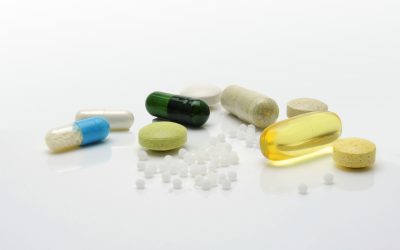What’s the Deal with Dairy and Fertility?
When it comes to optimizing fertility, there are often dietary recommendations that are made to improve overall nutrient status, increase antioxidants, support proper hormone synthesis and reduce inflammation. These recommendations must be individualized, as every patient is different and there is no one size fits all approach. However, in many cases dairy is either minimized or eliminated as part of an overall goal to reduce inflammation that may be contributing to fertility challenges.
Research on Dairy and Fertility
The research is inconclusive when it comes to the effects of dairy consumption on fertility. One study found that populations who consume higher amounts of dairy have faster age-related fertility declines1. Therefore, it seems that dairy may be harmful to fertility. However, another study showed a positive association between dairy intake and live birth rate in women older than 35 undergoing assisted reproductive technology2. This leads us to believe that dairy may actually be beneficial, at least in older women. But, a recent study found no association and concluded that there is not enough research to recommend that women increase their dairy intake for fertility purposes3.
In 2007, a large study concluded that consuming one or more servings of low-fat dairy per week increased the risk of anovulatory fertility, whereas high fat dairy reduced this risk4. While the consumption of full fat dairy may seem to be beneficial for fertility outcomes, this may also indicate the need for more fats in the diet. Healthy fats are beneficial for stabilizing blood sugar, while supporting ovulation and hormone production. We often recommend increasing healthy fats in the diet when trying to conceive. However, plant-based fats such as avocado, nuts and seeds have more anti-inflammatory properties than animal fats like dairy.
Who Should Avoid Dairy for Fertility?
When it comes to dairy, it has been shown to be more harmful in conditions such as PCOS and endometriosis. However, even in individuals who do not have these conditions dairy may need to be avoided due to inflammation or food sensitivities.
Dairy and PCOS
Insulin resistance is an underlying factor in PCOS that contributes to anovulation and symptoms of high androgens such as acne and male-pattern hair growth. With insulin resistance, there is elevated baseline levels of insulin and the receptors do not respond as well as they should. So, when blood sugar is high, it is more difficult for insulin to do its job and bring the blood sugar out of the bloodstream and into the cells and tissues of the body. One study found that a low starch and low dairy diet improved insulin sensitivity, reduced testosterone and resulted in weight loss in PCOS patients after 8 weeks5. Therefore, reducing dairy may be beneficial in individuals with this condition.
Dairy tends to be more stimulating to insulin as it is considered a high glycemic food. This means that it causes a relatively higher increase in blood sugar than other foods, and more insulin is required to deal with this blood sugar load. Low fat dairy products often have a more profound impact on blood sugar and insulin because fat is beneficial to stabilize blood sugar. Additionally, compared to high fat dairy products, low fat dairy is typically higher in sugar and can lead to excess androgens. This can inhibit ovulation and contribute to symptoms such as acne and hair growth.
Dairy may also contribute to acne formation through hormones that are present in cow’s milk and the stimulating effects on insulin-like growth factor (IGF-1). IGF-1 stimulates androgen production and increases the secretion of sebum, which can lead to blocked pores and acne formation6. Acne is a common symptom in PCOS patients due to elevated androgens. Therefore, in this population dairy may be best avoided.
Dairy and Endometriosis
A few studies have found that dairy consumption is correlated with a reduced risk of endometriosis. However, these studies explain that this association may be due to the beneficial effects of calcium and vitamin D, which downregulate growth factors and inflammation7, 8. Therefore, there are theories that specific nutrients may be more beneficial than dairy as a whole. On the other hand, further research has shown negative effects of dairy in endometriosis as it often contains hormones and toxic chemicals that can promote the development of this condition.
PCBs (polychlorinated biphenyls) and dioxins are toxic chemicals that are found in animal products. These compounds accumulate in fat and are found in higher amounts in meat and dairy. In fact, 90% of our exposure to PCB and dioxins are through food9. These toxins act as endocrine disrupters that can alter hormone responses, trigger inflammation and disrupt the immune system, all of which can contribute to the development of endometriosis.
Again, it is difficult to study the effects of diets in a large population as every individual is different. In general, dairy can be a pro-inflammatory food that may contain hormones and endocrine disrupting chemicals which can worsen endometriosis. Therefore, we often recommend avoiding dairy products in this condition.
Dairy Intolerance
Around 70% of the adult population is lactose intolerant10. This occurs when there are low levels of the lactase enzyme in the gastrointestinal tract. This results in difficulties digesting dairy products, which can lead to symptoms such as gas, bloating, cramping and diarrhea. However, there are also many people who experience dairy sensitivities which are milder than an intolerance. With a sensitivity, one might experience similar symptoms when dairy is consumed regularly. However, in some cases there are no gastrointestinal symptoms at all.
We often do food sensitivity testing to determine which foods an individual may be sensitive to. This is because sensitivities can still contribute to inflammation in the body, even in the absence of symptoms. In the presence of inflammation, fertility challenges may arise. Therefore, even if you do not experience physical symptoms with the consumption of dairy, the resulting inflammation from a sensitivity may be affecting your chances of conceiving.
Takeaway Recommendations
- Dietary recommendations must be individualized
- Low fat dairy is more detrimental to fertility than high fat dairy
- People with endometriosis or PCOS should likely minimize or avoid dairy consumption
- Dairy consumption is linked to insulin resistance and may contain endocrine disrupting chemicals
- Dairy may contribute to acne formation or worsening of this condition
- Sensitivities to dairy can contribute to inflammation and infertility in the absence of symptoms
Need more support with diet for fertility?
Because dietary recommendations are based on each individual case, it is best to talk your Naturopathic Doctor or Nutritionist about what may be the best option for you. At Awaken Life, I offer dietary support and food sensitivity testing to help you optimize your chances and achieve your health goals.
With love and in health,
Priya
References
- Cramer, D. W., Xu, H., & Sahi, T. (1994). Adult Hypolactasia, Milk Consumption, and Age-specific Fertility. American Journal of Epidemiology, 139(3), 282-289.
- Afeiche, M., Gaskins, A., Williams, P., Toth, T., Wright, D., Hauser, R., & Chavarro, J. (2014). Dairy intake in women and in vitro fertilization outcomes. Fertility and Sterility, 102(3).
- Wise, L. A., Wesselink, A. K., Mikkelsen, E. M., Cueto, H., Hahn, K. A., Rothman, K. J., . . . Hatch, E. E. (2016). Dairy intake and fecundability in 2 preconception cohort studies. The American Journal of Clinical Nutrition, 105(1), 100-110
- Chavarro, J., Rich-Edwards, J., Rosner, B., & Willett, W. (2007). A prospective study of dairy foods intake and anovulatory infertility. Human Reproduction, 22(5), 1340-1347.
- Phy, J. L., Pohlmeier, A. M., Cooper, J. A., Watkins, P., Spallholz, J., Harris, K. S., . . . Boylan, M. (2015). Low Starch/Low Dairy Diet Results in Successful Treatment of Obesity and Co- Morbidities Linked to Polycystic Ovary Syndrome (PCOS). Journal of Obesity & Weight Loss Therapy, 05(02)
- Kucharska, A., Szmurło, A., & Sińska, B. (2016). Significance of diet in treated and untreated acne vulgaris. Advances in Dermatology and Allergology, 2, 81-86
- Trabert, B., Peters, U., Roos, A. J., Scholes, D., & Holt, V. L. (2010). Diet and risk of endometriosis in a population-based case–control study. British Journal of Nutrition, 105(03), 459-467.
- Harris, H. R., Chavarro, J. E., Malspeis, S., Willett, W. C., & Missmer, S. A. (2013). Dairy-Food, Calcium, Magnesium, and Vitamin D Intake and Endometriosis: A Prospective Cohort Study. American Journal of Epidemiology, 177(5), 420-430
- La Rocca, C., & Mantovani, A. (2006). From environment to food: The case of PCB. Ann 1st Super Sanita, 42(4), 410-416.
- Ugidos-Rodríguez, S., Matallana-González, M. C., & Sánchez-Mata, M. C. (2018). Lactose malabsorption and intolerance: A review. Food & Function, 9(8), 4056-4068.
I want to help you get there. The key to your fertility lies within you.
Let's Awaken it!
More Reading
Naturopathic Medicine in Fertility
Whether you are just starting to try to get pregnant, struggling with getting pregnant or suffering from recurrent miscarriages, a fertility naturopathic doctor can help you along your fertility journey. Naturopathic doctors are trained healthcare professionals with...
The Role of Melatonin in Fertility
Most of us have heard about melatonin in the context of sleep, as a supplement that can impact our circadian rhythm. However, this hormone also plays an important role in female fertility. What is Melatonin? Melatonin is a hormone made by the pineal gland in...
Simple Tips to Improve Your Chances of Conceiving
It’s easy to get caught up in the minor details of what we could be doing better when trying to get pregnant. This can lead to constant thoughts around the effects that our daily activities have on our chances. This self-criticism can feel overwhelming and...




Share This
Share this post with your friends!